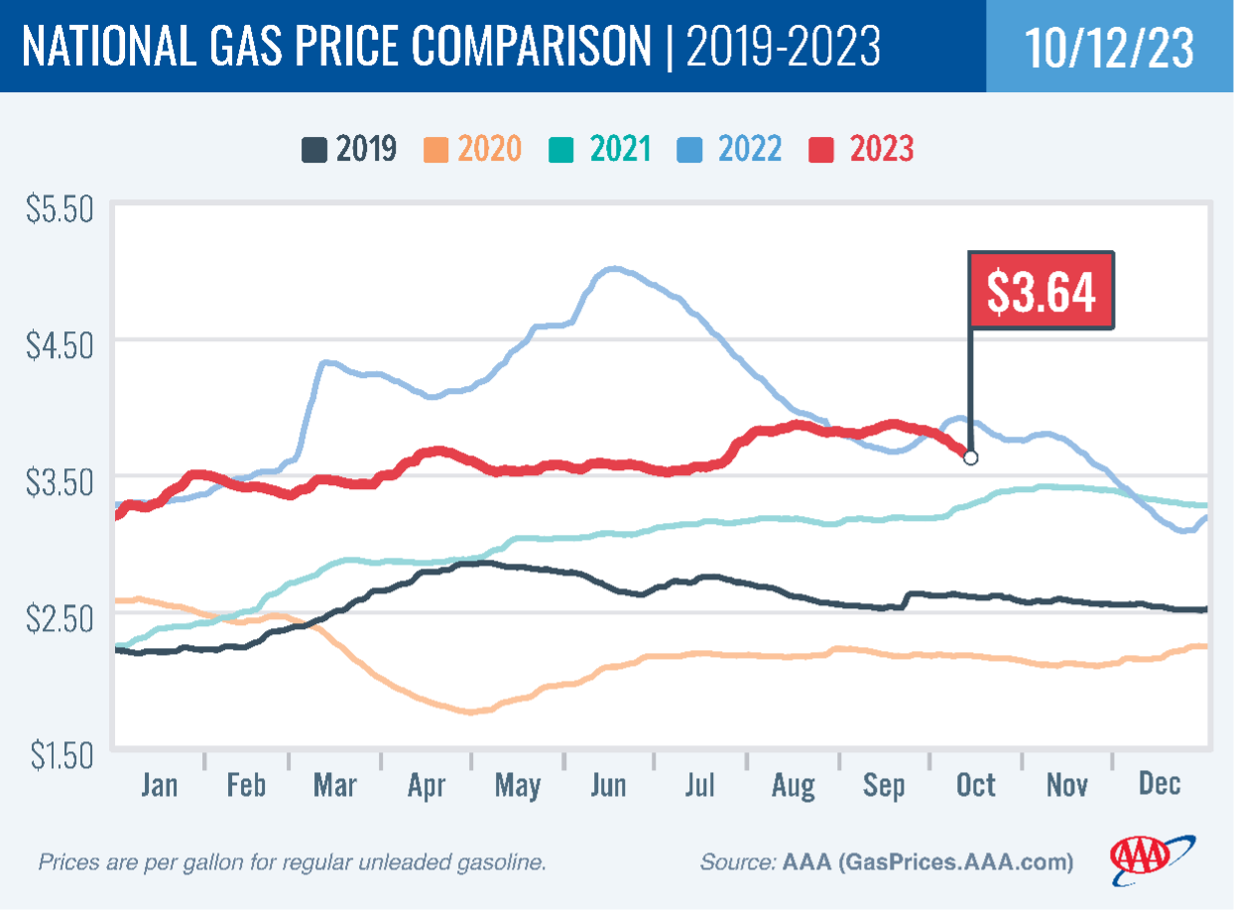Gas Prices Fall Despite Clouds of War
Gas Prices Fall Despite Clouds of War

Domestic pump prices maintained their daily decline despite the uncertainty rippling through the oil market in the days since Hamas terrorists attacked Israel. Oil prices have risen a few dollars per barrel this week, but that is far from the roughly $40 per barrel temporary spike following last year’s Russian invasion of Ukraine. The critical difference is that Russia is a significant oil producer, while Israel and the Palestinian territories are not. The national average for a gallon of gas fell 12 cents since last week to $3.64.
“As long as this war does not spread to include more countries in the region, the effect on the oil market will remain muted,” said Andrew Gross, AAA spokesperson. “Here in the US, there are now nine states with some county gas averages below $3 a gallon, and this number will likely increase in the coming weeks.”
According to new data from the Energy Information Administration (EIA), gas demand increased from 8.01 to 8.58 million b/d last week. On the other hand, total domestic gasoline stocks fell by 1.3 million bbl to 225.7 million bbl. Tepid demand, alongside descending oil prices, has pushed pump prices lower. If oil prices continue to decline, drivers can expect further price drops at the pump in the weeks ahead.
Today's national average of $3.64 is 19 cents less than a month ago and 28 cents less than a year ago.
Quick Stats
Since last Thursday, these 10 states have seen the largest decreases in their averages: California (−23 cents), Nevada (−19 cents), Arizona (−18 cents), Iowa (−16 cents), Indiana (−16 cents), Texas (−15 cents), Oklahoma (−15 cents), Michigan (−15 cents), Minnesota (−15 cents) and Washington (−14 cents).
The nation's top 10 least expensive markets: Georgia ($3.10), Mississippi ($3.11), Texas ($3.14), South Carolina ($3.16), Alabama ($3.16), Delaware ($3.17), Louisiana ($3.18), Tennessee ($3.19), Ohio ($3.21) and Arkansas ($3.23).
Oil Market Dynamics
At the close of Wednesday’s formal trading session, WTI decreased by $2.48 to settle at $83.49. Oil prices rose sharply earlier this week after Hamas attacked Israel, but they have since dropped as demand concerns continue to weigh on the market. If the market tips into a recession, oil prices, and demand would likely decline. Additionally, the EIA reported that total commercial crude stocks increased significantly by 10.1 million bbl to 424.2 million bbl last week.
Drivers can find current gas prices along their route using the AAA TripTik Travel planner.



